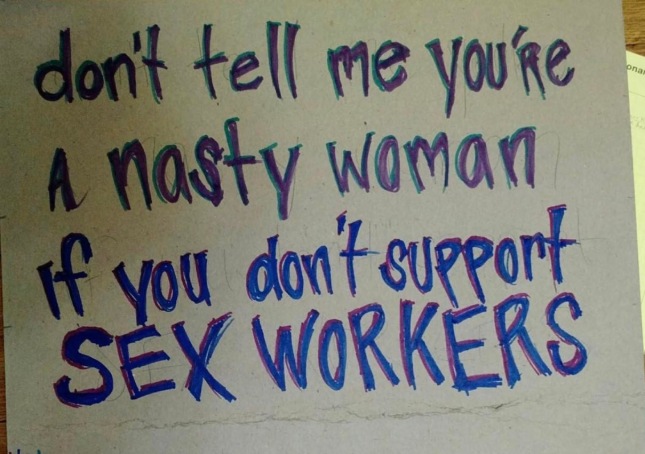I recently read this piece titled “9 Strategies For Non-Oppressive Polyamory” on the Black Girl Dangerous blog. It is from a few years ago, and completely thought-provoking. I shared it with my innermost open family and had some lively discussion about it. I write this piece from my position as a middle class, white, cis, queer, femme woman.
First of all, I agree wholeheartedly with the author when they write:
“Polyamory doesn’t get a free pass at being radical without an analysis of power in our interactions. It doesn’t stop with being open and communicative with multiple friends, partners, lovers, etc. We’ve got to situate those relationships in broader systems of domination, and recognize ways that dating and engaging people (multiple or not) can do harm within those systems. Our intimate politics are often the mostly deeply seated; it’s hard work to do.”
It is deeply important to me that my partners and I, my poly family, and my larger poly community continue to find value in self-growth, self-awareness, and becoming healthier in communication and relating to one another. Dating as poly does not automatically mean that someone is “healthy” or “open-minded” or more self-aware than someone else, and it is not some destination that one reaches in personal growth and evolution. We must continue to deconstruct and reconstruct our relationships so that they are as healthy and compassionate as possible.
Go take a look at the piece and then come back.
To start, here are the two points that I take some issue with:
“4. Remember that polyamory doesn’t make you radical all on its own, regardless of which directions your desire is oriented. We all have these preferences based on race, class, ability, gender, etc that need deep work and questioning. Dating 5 White cisgender people at once isn’t necessarily a radical act.”
I basically disagree. I think daring to show love, commitment, and care to more than one romantic or sexual partner IS a radical act in a capitalist and patriarchal society, especially for women, as we have historically been tied to monogamy (whereas men have had much more freedom to experience nonmonogamy). I also do not think that one must date people who hold marginalized identities in order to “prove” to anyone else that they are radical lovers. Please, do your work on uncovering your biases and prejudices and intentionally educate yourself and use your privilege to support people from marginalized communities. Again, though, daring to be honest and authentic and sharing that authentic self with the world IS, in my opinion, a radical act that I wish I saw more of in the world.
“7. Keep in mind that ‘poly’ is not a category of oppression in and of itself. This is not a monogamist-supremacist world. There are material privileges that support your access to the possibility of non-monogamy–ie the fact that you are able to make this choice.”
This one is pretty dicey to me. I have had experiences coming out to people as open/poly that support me in thinking that I was being intentionally hurt because I was not monogamous. Our culture and society, too, privileges those in monogamous relationships and marriages. I do think that the system of monogamy is intertwined with the systems of patriarchy and sexism (and all of the other systems of oppression in various ways), and that perhaps it cannot stand on its own like patriarchy can. I think that for people who are rejected from their families of origin or denied child visitation rights because they are in nonmonogamous relationships, it is too black-and-white to say that “This is not a monogamist-supremacist world.” In addition, while there are material privileges that may make nonmonogamous pursuits easier (more money and time off for dating), there is also the argument that having nonmonogamous relationships supports families in lower income positions.
To close, I do want to highlight a couple of points that resonated with me:
“1. Don’t treat your partners like they’re less or more than one another based on super hierarchical divisions. Numbering and ranking don’t make for resistive queer relationships; openness and compassion do. Your secondary partners are not secondary people–they’re just not the folks you might devote the most time or energy to in a particular way.”
Yes, yes, yes. A partner may be more primary because I share a home, finances, and long-term goals with them, as well as a longer history and the intimacy that comes from having navigated many ups and downs with them. That does not mean that another partner does not have value or priority in my life, and it is important to find the specific ways of communicating that to people in my life. I like this recent Kimchi Cuddles comic addressing the issue of “primary” relationships.
“9. Finally, remember that polyamory is not a new or edgy concept invented in the Western world. It’s a millenia-old idea to have and value multiple relations. Let’s avoid perpetuating that cultural erasure.”
Again, yes. Nonmonogamous relationships and cultures are much older than 1960s swinging in the U.S. Just as we can find evidence of patriarchal and monogamous relationship structures and cultures dating back as old as humans, so can we find evidence of matriarchal and nonmonogamous relationship structures and cultures just as old.

